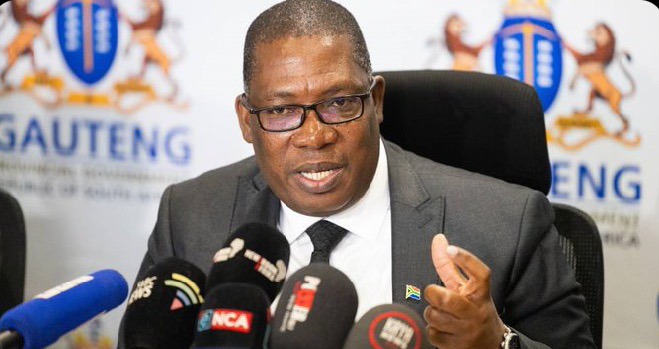In a dramatic development within the African National Congress (ANC), Gauteng Premier Panyaza Lesufi is reportedly engineering a bold strategy to challenge President Cyril Ramaphosa’s leadership. Sources suggest Lesufi is rallying discontented factions within the ANC to shift the party’s power dynamics, with potential plans to replace Secretary General Fikile Mbalula and realign the party’s leadership.
A Calculated Power Play
Lesufi, a rising force within the ANC, has gained a reputation for his assertive leadership in Gauteng and his ability to mobilize support across various factions. According to insiders, his alleged plans may involve bringing back former President Jacob Zuma into a more prominent role within the party. Zuma’s possible re-emergence could rekindle debates over corruption and governance, a contentious legacy that continues to divide the ANC and the nation.
In addition to Zuma, Lesufi is reportedly considering an unprecedented alliance with Julius Malema, leader of the Economic Freedom Fighters (EFF). Despite historical animosity between Malema and key ANC figures, such a partnership could offer a powerful platform to attract younger voters and those dissatisfied with the current administration’s direction.
Potential Fallout
Critics warn that Lesufi’s maneuvering could deepen existing fractures within the ANC. The party is already grappling with internal divisions, declining public support, and pressing socio-economic issues, including record-high unemployment and inflation. A destabilized ANC risks alienating its base and undermining its credibility ahead of critical national elections.
Political analysts argue that Lesufi’s rumored plans reflect broader dissatisfaction with Ramaphosa’s leadership, particularly among factions seeking a more assertive and populist approach to governance. However, any move to unseat Ramaphosa could provoke a fierce backlash from his supporters, who value his cautious reform agenda and focus on stabilizing the economy.
What Lies Ahead?
As the ANC prepares for its upcoming national conferences and strategizes for the 2024 general elections, Lesufi’s ambitions could mark a turning point in South African politics. If successful, his strategy might reshape not only the ANC’s leadership but also its policies and alliances, potentially aligning the party more closely with leftist and populist ideologies.
For now, all eyes remain on the ANC’s internal dynamics as Ramaphosa and his allies navigate these brewing challenges. The outcome of Lesufi’s alleged maneuvering could have profound implications, not only for the ANC but for the political and economic future of South Africa.






















